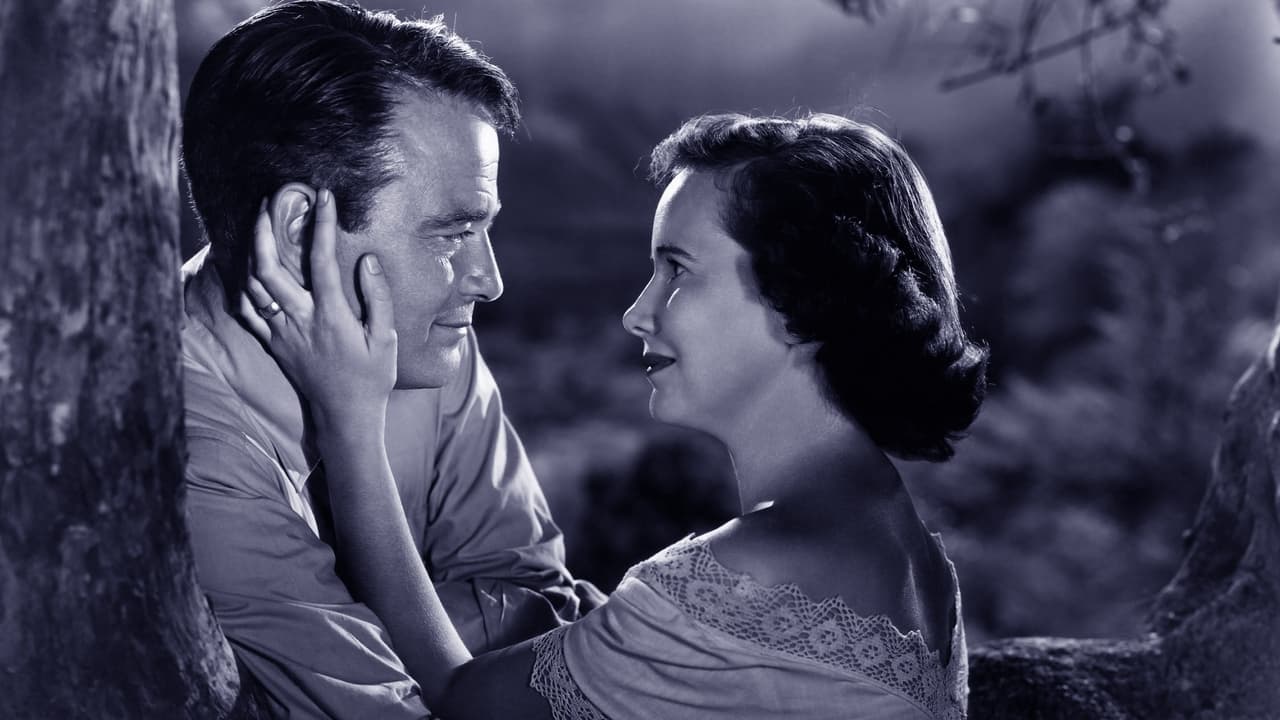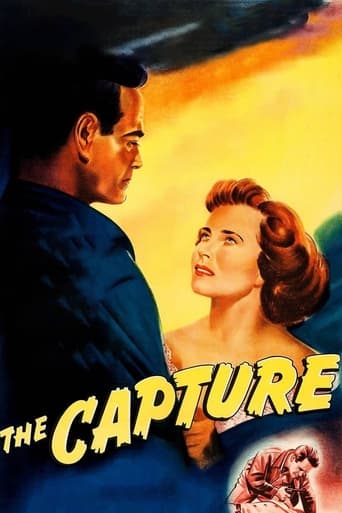

Copyright 21 April 1950 by Showtime Properties, Inc. Filmed on locations in Mexico and at Republic Studios, Hollywood. Released through RKO Radio Pictures. New York opening at the Rivoli: 21 May 1950. U.S. release: 8 April 1950. U.K. release: 26 June 1950. Australian release: 21 July 1950. 8,173 feet. 91 minutes.SYNOPSIS: Oil company employee mistakes innocent man for a bandit.COMMENT: Niven Busch (Duel in the Sun, Pursued) made this movie with his own money. Generally it's an interesting and creditable effort, though it does have a few odd shortcomings. That normally reliable player Victor Jory gives a mechanical and unconvincing performance, and there are moments in the script when the circumlocutions of the dialogue become too repetitious and predictable to sustain interest. Fortunately these moments are few and Mr Jory's part is small. Perhaps it could also be argued that Mr Busch has attempted to crowd too many elements into his script. On the credit side, however, he has plotted some intriguing and original twists into this Mexican western. And he and director John Sturges, assisted by cinematographer Edward Cronjager, have filmed the story against appropriately atmospheric, striking backgrounds.Lew Ayres does plausibly by the part of the tortured hero, whilst Miss Wright is likewise convincing in an equally difficult role. Jacqueline White, the unforgettable heroine of the later The Narrow Margin, has a rather different role here. After an elaborate introduction, she drops out to make room for the Teresa Wright character. Barry Kelley is perfectly cast as the heavy, whilst Milton Parsons makes the most of his two limited opportunities.All in all, The Capture emerges as a compelling thriller with strikingly film noirish location production assets.
... View MoreFormer oil manager turned rancher Lindley Vanner is holed up in a Mexican priest's home with the Mexican police surrounding it – a fugitive from the law for murder. He tells his story to the priest. Vanner was working on a Mexican oil field in 1937 when he sets out to track down the bandit accused of stealing his company's payroll. He corners the suspect but accidentally shoots him dead due to miscommunication. Overcome with grief, he quits his job & heads to the dead man's town for a change of scenery. Bluffing his way into the widow's home, he tries to make amends by taking on various repair jobs on the ranch. The widow discovers his true identity but falls in love with him anyway. The pair get married. But when Vanner discovers that his victim was in fact innocent & had actually survived the gunshot wound he inflicted, killed instead by a guard who was the real thief during interrogation, Vanner attempts to track the real thief down & get him to confess. He succeeds in finding the culprit but again kills him in self defence. Now he is wanted by the Mexican police.The Capture is a modern-day (for the time) Western made at a time when the genre was getting stuck in the routine of the times & was getting more & more mediocre. It wasn't until the Italians got involved that the genre received a much-needed boost.The film is essentially about the emotional impact that killing someone – particularly by somebody who wasn't a soldier or police officer – inflicts on the person who does the killing. The death is accidental but the person is stuck with an emotional scar of that very act that compels them (well, most of the time) to make amends, well, if the person is honest & has morals, that is (most murderers these days tend to regard themselves in the right or have some severe mental defects that make them immune to grief). It is because of this plot angle that I rank the film as "mediocre" instead of "disappointing" since the rest of the film is almost sunk by poor writing. The idea of making the hero an everyday working stiff is a mediocre idea because the reason people go to the movies to watch is because they want to see larger-than-life characters or interestingly complex & unusual characters, not ordinary people who don't have anything to offer for them. Cinema is at its heart a medium of pure escapism (which is why I prefer science fiction & horror films over mediocre Westerns such as this) & films like The Capture don't do much to add to that medium – instead they detract & waste resources. The actors do a decent job of inhabiting their roles but are wholly unremarkable. Plus, the film tends to get boring in the middle section with Lew Ayres & Teresa Wright interacting – their characters loathe each other but very quickly fall in love in another of those old-fashioned Instant Romances, only to find their marriage threatened by the exposure of the fact that the dead husband was innocent of the crime that ultimately killed him. Ayres' transition from everyday Joe to tough guy is a bit unrealistic, although he acquits himself admirably.
... View MoreI have been quite impressed with this one; genre-wise, it's a romance. It's a noir western, but essentially a romance, and a very wholesome and lovable movie. John Sturges made this charming and very stylish noir western with an interest in rocky landscapes and generally a very good sense of the places, and a very intriguing lead character: the oilman, successful as an one man posse, then turned cowboy to help a needy family, but firstly to redeem himself, and to expiate, and also strongly drawn by the sick passion for a widow, this with a cheap script, and happily it's not Ford's sometimes extrinsic religion (even Jory doesn't play as one of the conventional priests of that age: Fonda or Malden), and, this strangely, not the religious behavior as a distorting and possibly misguiding of the white man's conscience. The style of the movie is very grounded (from the Spanish spoken by the Mexicans in the opening scenes, to the landscape and the unflattering style of the cast's acting); everything, very cinematographic, and very appropriate. It's a director's movie, of one who turns everything into straight cinematography.The plot is quite tenebrous. The leading character resembles physically his victim, and their relation is interesting, unto tenderness, as the chased man reposes peacefully. There's the character's narration, yet some things are understated, and he might be unreliable, to the effect of ignoring himself. What does he wish? He let go his fiancée, then all of a sudden falls in love with a widow.His wedding party was so endearingly modest; and once married, he starts his chase.Though given only a supporting role, Jory is the best of the cast.The special effects were done by the Lydecker brothers. And it's a very good looking movie.
... View MoreWounded fugitive Lew Ayres (as Lin Vanner) finds refuge in the company of convenient priest Victor Jory (as Father Gomez); in the latter's home, he relates, via flashback storytelling, his unfortunate story. Mainly, Mr. Ayres' tale concerns his stay as ranch hand for new widow Teresa Wright (as Ellen Tevlin) and her son, Jimmy Hunt (as Mike). Despite revealing he was responsible for her husband's death (after a payroll heist) Ayres wins Ms. Wright's hand in marriage.Most enjoyable during Ayres' sleuthing, after he weds Wright; during this time, there is a neatly directed John Sturges hanging. Still, this is a more unsatisfying than not film; it doesn't ever find a balance between psychological swerving talk, and occasional action. "Cisco Kid" Duncan Renaldo (as Carlos) can be spotted among the supporting players.
... View More